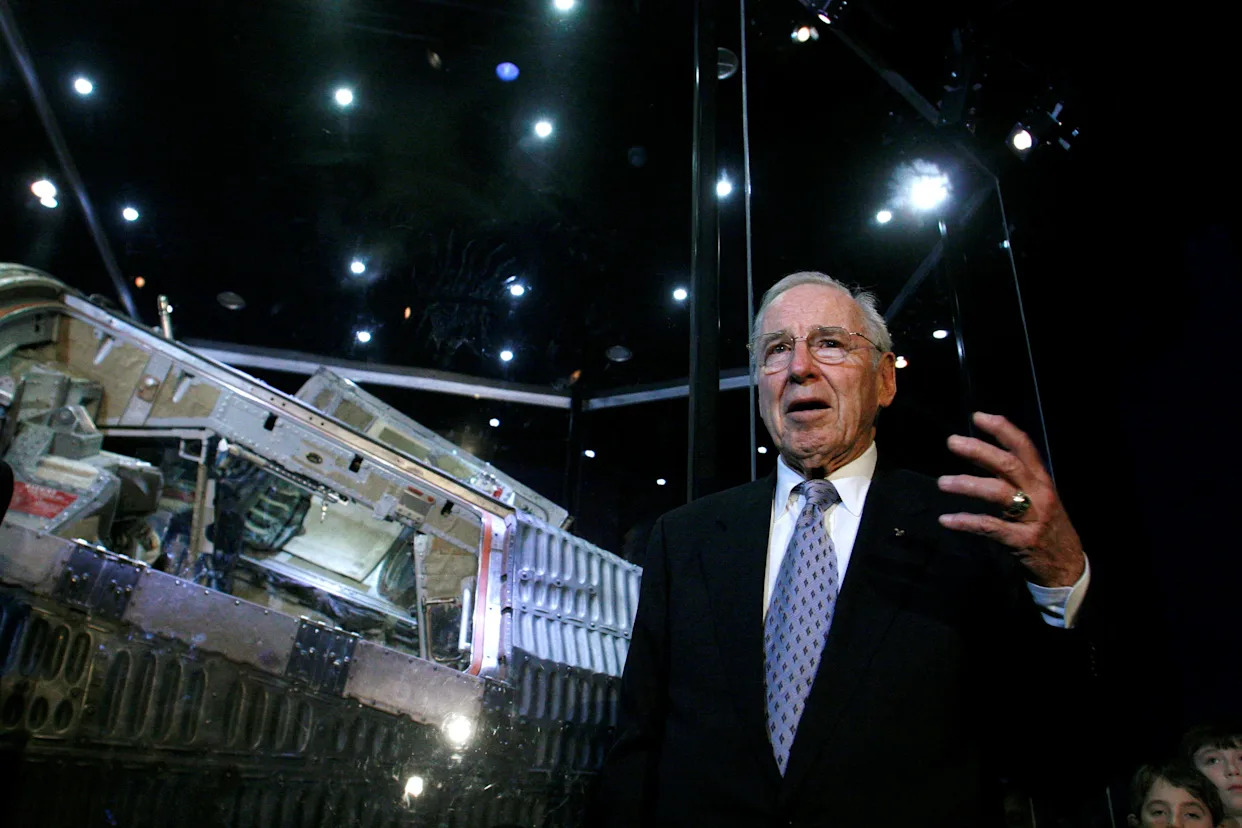A Nation Remembers Astronaut James Lovell, Commander of Apollo 13

James Lovell, the steely-eyed astronaut who commanded the harrowing Apollo 13 mission and became an enduring symbol of human resilience in space, has passed away at the age of 97. NASA announced his death on Friday, August 8th, confirming he died Thursday, August 7th, at his home in Lake Forest, Illinois.
Lovell’s career spanned a pivotal era of American space exploration, encompassing four missions including Gemini and Apollo programs. His legacy extends beyond the technical achievements of those flights; it resides in the unwavering composure he displayed during one of NASA’s most perilous moments – the 1970 Apollo 13 mission. Following an onboard oxygen tank explosion that crippled their spacecraft mid-flight to the Moon, Lovell and his crewmates, Jack Swigert and Fred Haise, relied on ingenuity and rudimentary celestial navigation techniques to safely return to Earth in a dramatic ocean splashdown on April 17, 1970.
The subsequent film adaptation “Apollo 13,” released in 1995 and starring Tom Hanks as Lovell, introduced the astronaut’s story to a wider audience, solidifying his place in popular culture. Prior to Apollo 13, Lovell served as command module pilot on the historic Apollo 8 mission, where he became one of the initial astronauts to orbit the moon aboard a Saturn V rocket – a groundbreaking feat that captivated the world.
Tributes from across the political spectrum poured out following news of his passing. Illinois Representative Raja Krishnamoorthi praised Lovell’s “courage and grace,” emphasizing how the Apollo 13 mission fostered global unity and showcased the potential of human resourcefulness in overcoming adversity. In a statement released by his family, they described him as “Dad, Granddad, and the Leader of our family,” highlighting his unwavering optimism, humor, and ability to inspire those around him.









